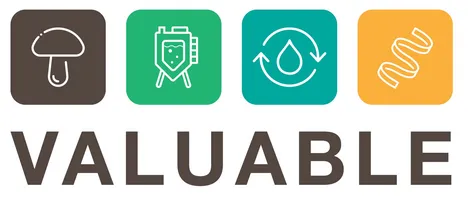Biomass is at the core of the bioeconomy and the demand for it is increasing worldwide as we transition to a lowcarbon economy. Biomass is predominantly used for feed and food products (~55% of global biomass available) followed by bioenergy, with only 8% to date used for bio-based materials despite offering an alternative to fossil derived chemicals. To promote the development and commercialisation of bio-based materials, an abundance of feedstocks (i.e., sugar, starch, vegetable oil and ethanol) are required. The use of these common feedstocks, leads to biodiversity and land use change, more land is needed to enable the replacement of fossil raw materials, estimated at an additional 2.8 billion tonnes (Bt) Dry Matter (DM) biomass per year, which competes with food and feed production.
To achieve a sizeable and economically feasible bioeconomy, new technologies are therefore needed in order to diversify and deliver processes that can use available, underutilised and more sustainable biomass feedstocks to leave more land available for biodiversity protection and food production, whilst facilitating the substitution of fossilbased resources with bio-based ones. Mobilisation of biomass requires an integrated approach, leading to full utilisation and a diversified product portfolio that may replace multiple conventional products derived from fossil feedstocks or from non-sustainable agricultural practices such as palm oil production.
An example of underutilised biomass relates to the production of citric acid, which generates fungal biomass waste as side stream of citric acid production. This fungal biomass is currently sold as low-value animal feed despite (a) being rich in nutrients that could be used for more valuable purposes, and (b) being rich in chitin, the second most abundant polysaccharide material globally, with a wide variety of applications in biomedical, food, healthcare and cosmetic markets.
The VALUABLE project, coordinated by TUM-WSSB, aims to demonstate a novel platform process which can fully valorize fungal biomass feedstock into highly desirable yeast oils and chitin in order to substitute convential fossil derived fine chemicals. The international consortium consists of 9 project partners from 4 countries representing both, academia and industry.
Staff
- Dr. Marion Ringel (scientific project management)
- Dr. Daniel Garbe (admin. project management)
- Dr. Michael Paper
- Felix Melcher
- Robert Fimmen
- Johannes Mertens
- Dr. Thomas Badmann
Homepage: https://valuable-project.eu/

